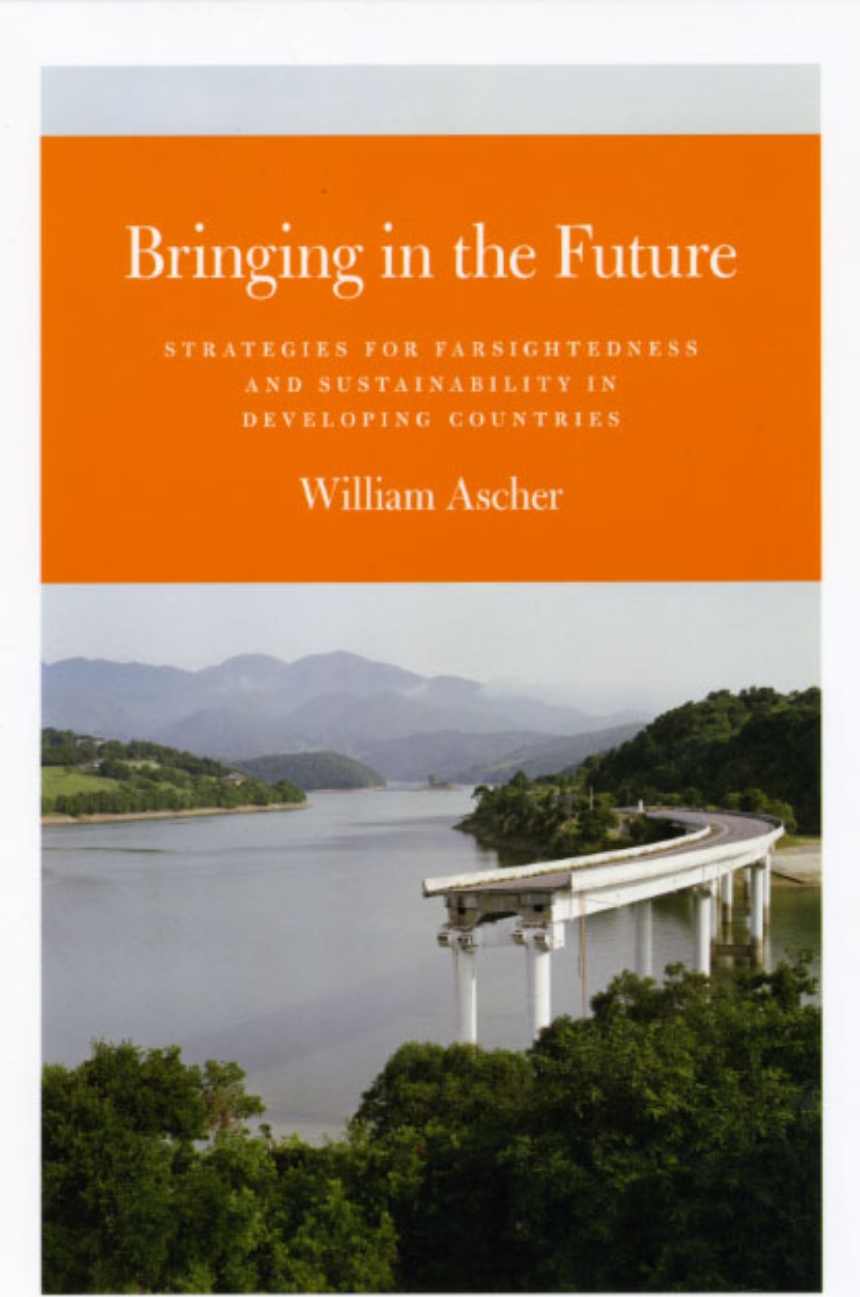Bringing in the Future
Strategies for Farsightedness and Sustainability in Developing Countries
Bringing in the Future
Strategies for Farsightedness and Sustainability in Developing Countries
Humans are plagued by shortsighted thinking, preferring to put off work on complex, deep-seated, or difficult problems in favor of quick-fix solutions to immediate needs. When short-term thinking is applied to economic development, especially in fragile nations, the results—corruption, waste, and faulty planning—are often disastrous. In Bringing in the Future, William Ascher draws on the latest research from psychology, economics, institutional design, and legal theory to suggest strategies to overcome powerful obstacles to long-term planning in developing countries.
Drawing on cases from Africa, Asia, and Latin America, Ascher applies strategies such as the creation and scheduling of tangible and intangible rewards, cognitive exercises to increase the understanding of longer-term consequences, self-restraint mechanisms to protect long-term commitments and enhance credibility, and restructuring policy-making processes to permit greater influence of long-term considerations. Featuring theoretically informed research findings and sound policy examples, this volume will assist policy makers, activists, and scholars seeking to understand how the vagaries of human behavior affect international development.
288 pages | 8 tables | 6 x 9 | © 2009
Economics and Business: Economics--Development, Growth, Planning
Reviews
Table of Contents
Preface
Acknowledgments
I The Challenges and Hopes for Farsighted Action
1 The Challenge of Farsightedness
2 The Root Causes of Shortsightedness and Their Manifestations in Developing Countries
3 Gaining Traction to Overcome Obstacles to Farsightedness
II Structuring Rewards and Risks
4 Creating and Rescheduling Tangible Benefits and Costs
5 Creating and Rescheduling Social and Psychological Rewards
6 Realigning Performance Evaluation
7 Self-Restraint Instruments
III Improving Analytic Frameworks
8 Analytic Exercises
9 Deepening Problem Definitions
IV Framing the Appeals
10 Design Dimensions of Communicating Farsighted Appeals
11 The Triple Appeal Principle
12 Managing Heuristics
V Changing the Policy Process
13 Empowering and Insulating the Farsighted Leader
14 Structuring Decision-Making Processes
15 Conclusions
Notes
References
Index
Awards
International Political Science Association's Research Committee on the Structure and Organization of Government (SOG): Charles A. Levine Memorial Book Prize
Won
